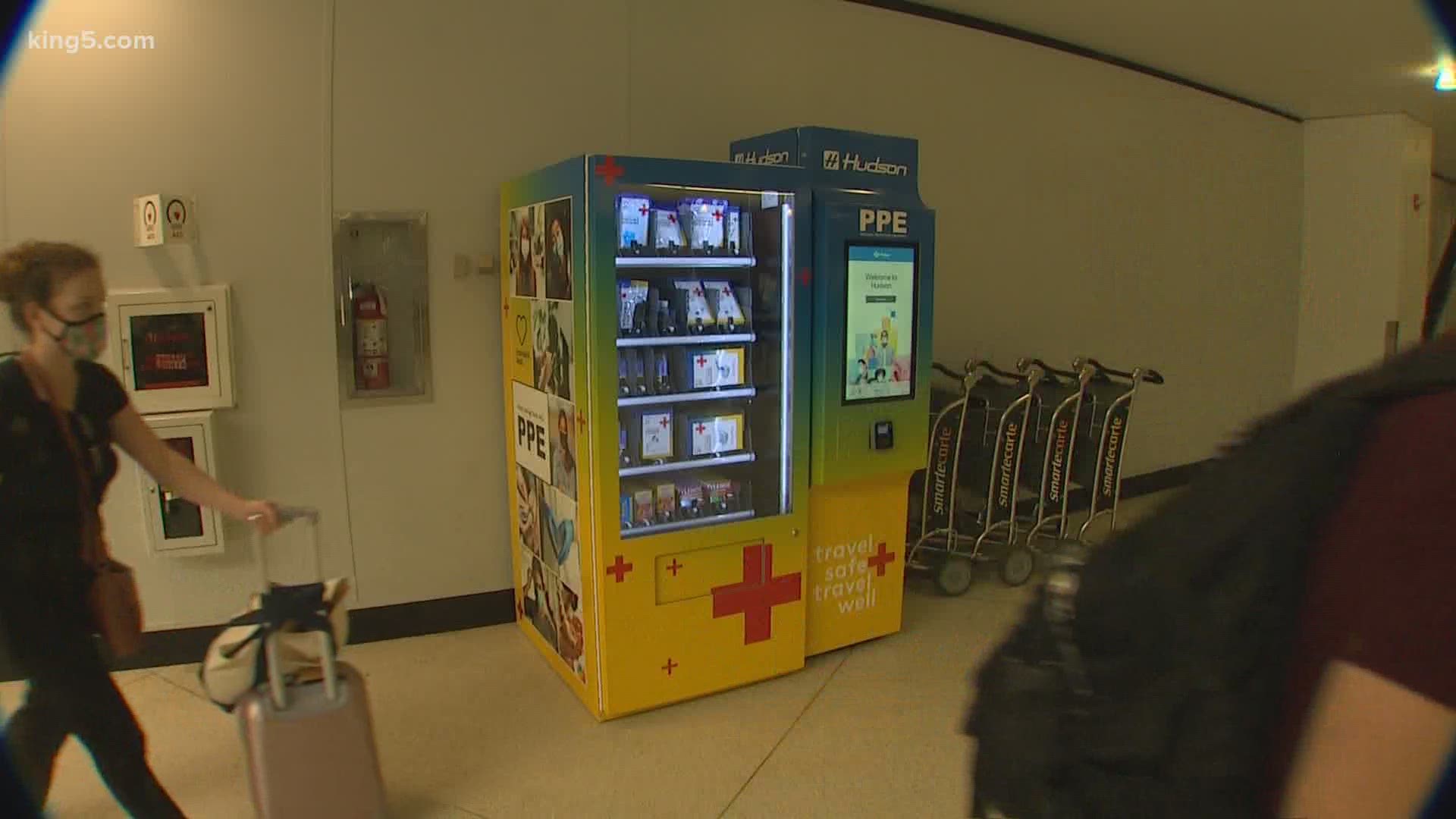SEATAC, Wash. — As part of a series of coronavirus safety initiatives, Sea-Tac Airport will launch a temperature checkpoint Tuesday that will flag passengers running a high fever.
The business of flying is one of the hardest hit parts of the economy. During the height of the pandemic in March and April, passenger traffic was down 95% at Sea-Tac Airport and others. It’s still down, but closer to 75%.
Passenger concerns about becoming infected with the coronavirus is a contributing factor, and airlines and airports went to different lengths trying to reassure passengers that flying is safe. That ranged from showing how ventilation on airplanes helps guard against spread to some carriers maintaining a modicum of social distancing by refusing to sell middle seats.
At Sea-Tac, there is a new round of initiatives to convey to passengers that part of the travel experience is continuing to get safer.
A sophisticated electronic thermometer will go up Tuesday at 9 a.m. as people approach the northernmost checkpoint, which serves many passengers for Alaska Airlines. The airport calls these voluntary temperature checks, but it can flag someone running a temperature in excess of 100.4 degrees Fahrenheit.
Sea-Tac and Alaska call it a proof of concept, and the temperature checks could be used more widely.
You can opt out, but Alaska says if somebody has a temperature that individual will be greeted and connected with a health professional who can evaluate if the temperature is due to something like a simple ear infection or COVID-19. If it’s likely coronavirus, the passenger will be refused boarding and booked onto another flight at a later date.
On Friday, Hudson, better known for its airport stores and newsstands, established four vending machines that will dispense a mask for as little as $4.50 or your personal infrared thermometer for $89.99. It also dispenses bottles of hand sanitizer, ultraviolent light phone sanitizers and other personal protective equipment (PPE).
In early July, some members of the airport’s “Pathfinder” ranks, who help out passengers, began distributing kits to people behind security who don’t have masks.

